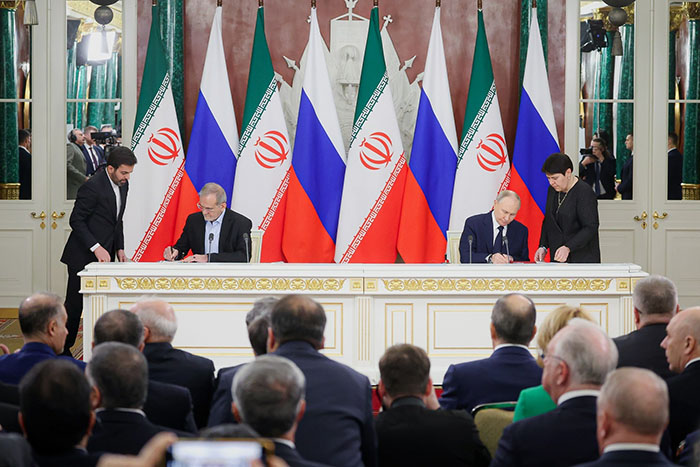Russia has made extensive use of Iranian drones during the war in Ukraine and the United States accused Tehran in September of delivering close-range ballistic missiles to Russia for use against Ukraine. Tehran denies supplying drones or missiles.
The Kremlin has declined to confirm it has received Iranian missiles, but has acknowledged that its cooperation with Iran includes “the most sensitive areas.”
Pezeshkian visit to Moscow also comes at a time when Iranian influence across the Middle East is in retreat after Islamist rebels seized power in Syria, expelling ally Bashar al-Assad, and after Iran-backed Hamas has been pounded by Israel in Gaza.
Israel has also inflicted serious damage on the Tehran-backed Hezbollah in Lebanon.
Russia too finds itself on the backfoot in Syria where it maintains two major military facilities crucial to its geopolitical and military influence in the Middle East and Africa but whose fate under Syria’s new rulers is now uncertain.
Putin met Pezeshkian on the sidelines of a BRICS summit in the Russian city of Kazan in October and at a cultural forum in Turkmenistan the same month.
Pezeshkian, who is holding talks with Russian Prime Minister Mikhail Mishustin before meeting Putin, is accompanied to Moscow by his oil minister, and Western sanctions on the sector and the subject of how to circumvent them are likely to be discussed.

